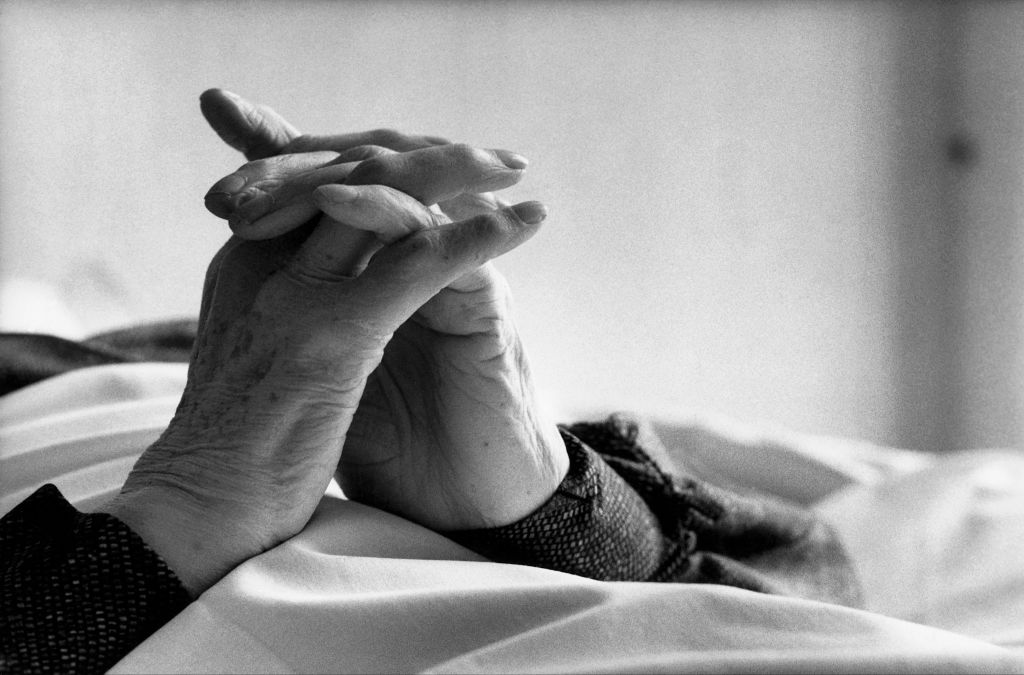As headlines go, it was strong stuff. “Vast majority of voters support change in law on assisted dying”, screamed the Times this week, reporting the results of a poll commissioned by Dignity in Dying, a pro-euthanasia campaign group, which purported to show that around three-quarters of the United Kingdom’s population support legalising the practice.
Now Sir Keir Starmer has weighed in, stating his commitment to allowing a vote on legalising assisted dying in the next parliament. Speaking to campaigner Dame Esther Rantzen for an ITV programme, the Labour leader claimed that he was “personally in favour of changing the law”.
Between polling results such as that covered in the Times, well-choreographed expressions of support from vaguely familiar celebrities, and now an endorsement from the likely next prime minister, the conclusion of the “debate” on euthanasia, as its proponents like to call it, may seem to be foregone. Really, it is anything but.
As the recent Irish referendum on proposed amendments to its constitution has reminded us, polling is at best an inexact science, and its results may hinge on social desirability above all else. There, poll after poll showed that the Yes side, which was backed by all the major parties, was going to manage a comfortable win. In the end, though, both proposed amendments were decisively defeated, and one was voted down with the biggest No vote for any constitutional referendum since the establishment of the Irish state.
And this is before looking at the wording of the Dignity in Dying poll — wording which has not been publicly released, only a press summary of carefully selected figures. But of all issues, euthanasia is not one which is reducible to a series of Yes/No answers.
Time after time when I have debated the issue in public, I have had the same experience of seeing an audience, initially in favour of legalising euthanasia, change its mind as the experiences of other jurisdictions which have legalised it are discussed. As consequences, foreseen and unforeseen, of removing the taboo on the deliberate killing of another are laid bare.
Despite all of this, it is not difficult to understand why the British pro-euthanasia movement, after decades of continuous defeats in Parliament, may feel that it finally has momentum on its side. We all want a good death. And a good death is exactly what the pro-euthanasia movement is offering.
But the good death they promise — even for those who are not coerced into dying by social forces — is an illusion. In Oregon — which Dignity in Dying is now promoting as its preferred model, after suddenly abandoning Canada as its favourite example — there was an 11% complication rate to euthanasia procedures. The longest one saw a patient struggling for 104 hours before finally dying.
This is a reality British media, normally so keen to report on gruesome stories of botched American executions and the like, insists on ignoring. The reality is that the human body is geared toward the continuation of life, not death, a fact no cocktail of barbiturates can alter.
In neighbouring Washington, 59% of those who died by euthanasia in 2022 reported that they applied for it because they felt they were being a burden on their families. But to some of euthanasia’s most enthusiastic supporters, this is a feature not a bug.
Only last month, the former MP turned centrist favourite Matthew Parris wrote that: “Once our national culture openly condones such an act, the terminally ill may put pressure on themselves to do the deed.’ […] In time, I think that the spread and acceptance of assisted dying may indeed do that. And let me bite deeper into the bullet. I think this would be a good thing.”
Parris is to be commended for his honesty on an issue so many of his fellow travellers feel the need to sidestep. The ultimate argument in favour of euthanasia has always been that life only has meaning as long as it is useful to society. Those of us who reject such a notion of dignity must fight its legalisation as much as we can.











Join the discussion
Join like minded readers that support our journalism by becoming a paid subscriber
To join the discussion in the comments, become a paid subscriber.
Join like minded readers that support our journalism, read unlimited articles and enjoy other subscriber-only benefits.
Subscribe